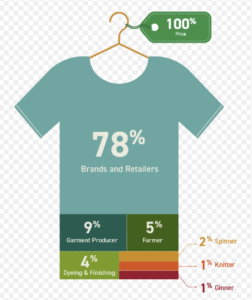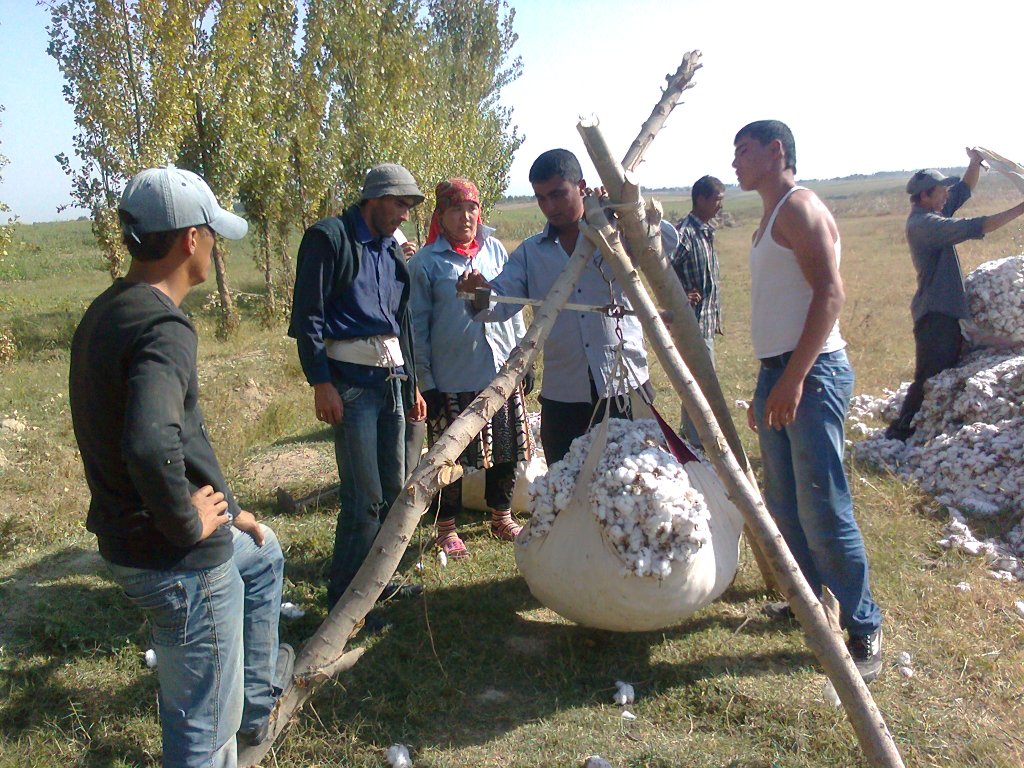Senior officials of two global organisations that have produced a report ‘Cotton and Corporate Responsibility’ welcome what they called “somewhat limited legislative proposals” and want the public to be more aware and to “punish”
An obligation on businesses buying products around the world to ensure that workers and producers are properly paid and that their rights are protected has been strengthened by improvements to a European Commission proposal adopted by the European Parliament.
The heads of two global organisations that have produced a report ‘Cotton and Corporate Responsibility’ welcome what they called “somewhat limited legislative proposals” and want the public to be more aware and to “punish”
The proposed directive would have global implications for the fashion business. Cheap cotton comes at a cost of lives and poverty affecting thousands according to Tamar Hoek, Senior Policy Director Sustainable Fashion at Solidaridad Network based in the Netherlands and Keith Tyrell Executive Director Pesticide Action Network based in the UK.
“We need to make sure that the broader public understand that there is a need to go further than this legislation will take us. Commercial firms need to take steps to ensure that the exploitation that is destroying lives is ended. The proposed legislation, while positive, is not enough. It is time for brands to act,” commented Tamar Hoek.
Cotton is grown by poor people who make a living from it. We need to ensure that people get a living wage and work in a safe environment. People are being poisoned by chemicals used to grow plants and this is not acceptable, added Kieth Tyrell.

Both agree that: “The cost of cotton is a tiny, tiny fraction of the cost of a garment. Ensuring that producers and their workers are properly paid is pennies in something’s that costs tens of euros”.
The European Parliament’s decision to improve the Commission’s proposal requiring companies to assess the potential or actual adverse impact that their purchasing practices and business models may have on human rights and the environment, was described both organisations as “…a significant improvement”.
Parliament has also improved the Commission’s proposal by recognising the right to a living wage. Commenting Solidaridad highlighted that one-third of food is produced by smallholder farmers that earn an income rather than a wage and many struggle to make a living.
Tamar Hoek and Kieth Tyrell jointly condemn the current state of the cotton trade. Both highlight that “people are dying and suffering long term harm from chemicals that are banned in the EU including carcinogens.
Tamar Hoek commented: “It is all about people and the impact on families. Kids need to go to work because their parents cannot. How this ranks in terms of public information we just do not know. Some countries have due diligence legislation such as Germany and France. There is not much interest on the part of the government in Italy. Other countries are waiting for the EU. Much more needs to be done”.
She added: “We are a little bit disappointed about the way the Commission, in its proposal, is excluding Small and Medium Sized Enterprises (SMEs) in particular with reference to all relevant issues including the question of living wages. It is now up to Member States to achieve something more ambitious.”
A report – the 2023 Cotton Ranking – by Soldaridad Europe and Pesticide Action Network (PAN UK) found that only nine fashion companies are “doing the bare minimum to address unsustainable cotton”
It declared that on the issue of cotton “the vast majority of international brands (89 percent) are non-transparent, unsustainable and show little progress towards improving labour conditions adding: “Nearly half of smallholder cotton farmers are poisoned by pesticides every year.”
Keith Tyrell commented: “We hope that people will vote with their feet. people generally want to do the right thing and price is not the only factor influencing their buying decisions – I hope consumers will reward businesses that are doing the right thing and penalize those that are not”.
To underline the point he added: “We visit cotton producers and collect data and of 3000 we saw in India, Tanzania and other countries around the world 39 percent had experienced medical problems ranging from a headache to seizure, unconsciousness or blindness and other severe effects.
“One third were found to have had to take 30 days or more off work so it is not just a health issue – it’s an economic one. I would describe the situation as a chronic epidemic. All this for cheap cotton to make T-shirt and other fashionable clothing that sells for high prices.
Based in the UK he pointed out: “Because we have left the EU it doesn’t mean we are off the hook. Brands need to recognise they sell globally”.
Main image: Cotton weighing, By Shuhrataxmedov – Own work, CC BY-SA 3.0, https://commons.wikimedia.org/w/index.php?curid=23525233




